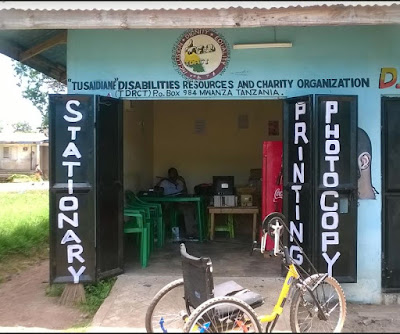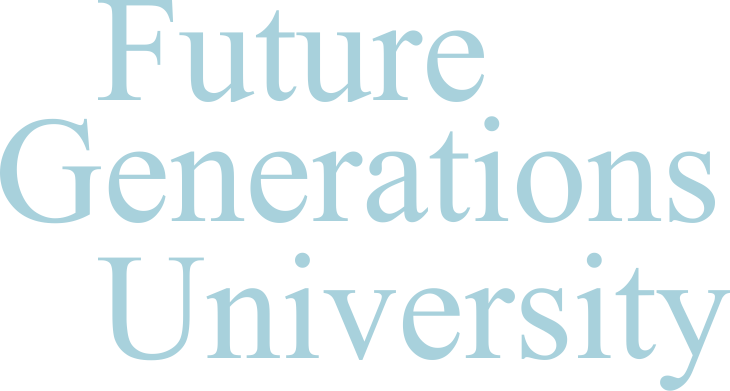Using Self-Help Groups and Information Technology to Empower People with Disability in Tanzania: A lesson from the Nyamagana and Ilemela Districts of Mwanza City
 |
| Mwanza, Tanzania and Lake Victoria |
This work focuses on empowering the forgotten peacebuilders: people with disability (PWDs), and is based on the observation that the majority of PWDs, particularly females, from developing countries like Tanzania are forgotten, uneducated, categorized as passive and unfit to participate in different socio-economic related matters. This creates a cycle of PWDs being unable to advocate for themselves because of poverty, stigma, and exclusion. Discussions around empowerment are commonly limited to activities associated with economic, social, and political empowerment. This blog piece takes the debate beyond and it defined empowerment as processes whereby individuals achieve increasing control of various aspects of their lives and participate in the community with dignity.
The study this piece is drawing from was conducted in the Nyamagana and Ilemela Districts of Mwanza City in Tanzania. It asked whether Self Help Group (SHG) membership and the use of Information Communication Technology (ICT) has the impact of acting as tools of enablement and as a means of empowering and improving the quality of life of people with disabilities. There was no common agreement, as respondents explained mixed feelings about ICT and self-help groups. The positive, negative, and challenges of ICT and SHG were detailed, ultimately, the positive impacts were found to outweigh the negative.
 |
|
Tusaidiane Disabilities Resources and Charity Organization of Tanzania, the NGO
started by Msafiri to address many of the issues noted in this study
|
Essentially, the study looked into the possibility of engaging and mobilizing Communities and Technology for Social Change. Attention was placed on PWDs and care givers of PWDs who are members in associations like Village Community Banks (VICOBA), Village Saving and Loan Association (VSLA), and Community Based Organizations (CBO) that involve PWDs as members. On ICT use, attention was placed on the use of mobile phones calls, text messaging (SMS), and the open-source software FrontlineSMS. A total of 59 participants were involved in this study, mainly members in self-help groups. A variety of data collection tools were utilized for a mixed methods approach (face-to-face semi-structured interviews, phone interviews, participant observation, focus group discussion, dialogue, and desktop research methods).
The desire of members of self-help groups to be empowered economically was the major motivation provided by PWDs and care givers of PWDs to join in these groups, especially when driven by the possibility of getting money. Another reason was to exchange experiences and advice on how to deal with different challenges, followed by the aspiration to promote income-generating activities. The next reasons were to get loans, to promote savings, and to repay old debts. To have relationships with colleagues stood as the last reason for joining a self-help group. Only 15% of participants maintained positive views about the benefits of SHGs towards empowering persons with disability. This was aimed specifically at the SHGs’ process of facilitating members in the sharing of experiences and information, in building trust and recognition, building social and human capital through social interaction, sharing ideas and advice on how to deal with different life challenges, and finding ways of solving problems together as a team, rather than individually.
 |
|
Disability consortium in the author’s community in the Lake Victoria
area of Mwanza
|
On the other side, almost 85% of participants indicated that their participation in a self-help group does not offer any benefit to them as a PWD. They specified that individual enterprises are better than group enterprises. And despite of the majority of SHG members having the goal of improving their incomes through savings and small loans provisions, it was found that most of the PWDs interviewed have experienced the inability to repay their loans, or they simply make payments after intensive follow-up and pressure through different means. This created tensions and bad relationship among SHG members. It reduced solidarity, friendship and networking. The majority neglected to make a habit of working together as a team as a result of devaluing one another based on ignorance, illiteracy, lack of trust, and inadequate knowledge about SHG benefits, among other reasons. In addition, several SHG members mentioned that it caused a disturbance in certain cases among members when they were required to follow up on untrustworthy members’ loans as they were expected to monitor their peers’ behavior to ensure the loans were being used for their agreed upon purpose as stated in the loan application. Monitoring was both costly as well as time-consuming. Furthermore, rules such as mandatory weekly savings and regular meeting attendance or weekly meetings was a difficult task to be followed, as it sometimes caused members to be absent from their day labor, while earning nothing from SHG to compensate for that loss.
It was then indicated that there are greater benefits to ICT as a connection tool for this communities’ members to help each other. This was achieved by the technology being used to change an environment that is typically disabling into one that is instead empowering, offering flexibility of time and space. ICT is enabling PWDs to be at peace with their surroundings by connecting them to the greater world. They’re operating in this manner with less discrimination, enabling them to unlock opportunities that had previously been inaccessible, their voices being heard, enabling them to live, to build, and create and maintain personal networks as they are no longer isolated as they were when compared to the pre-information period. Moreover, ICT can be used as complementary to SHGs with the purpose of strengthening communication and building networking among its members.


FrontlineSMS software as a tool for handling the SMS-based feedback was used in this project after observing that it is free and open-source software. It turned a laptop and a mobile phone into a central communications hub. Once installed, it enabled users to send and receive text messages using mobile phones. A laptop acted like a hub or server of sending and receiving SMS without requiring an Internet connection. It allowed users to send bulk text messages, stored phone numbers and names of members, and recorded all incoming and outgoing messages. All data was retained on a computer, not on servers controlled by someone else. It was found to be scalable method; messages could be sent to individuals or large groups, and it enabled two-way communication. It also supported most mobile phones handset, including the basic phones (‘dumb’ phones), which support voice and text messages only. FrontlineSMS was noted to be useful software in mobilizing people and giving feedback through SMS. It also made it easier for PWDs to deal with loan defaulters, allowing follow-up on a loan issue as a group rather than an individual follow-up. Overall, the use of SMS (text messaging) was chosen as the most effective ICT method after seeing that it is quite powerful, particularly so when considering the value fiscally, and furthermore minimizes the time required to communicate.
 |
|
The SEED-SCALE method of social change,
presented by Future Generations University
|
The conclusion of this study proposes the development of a SEED-SCALE-based curriculum as the best option to help in forming a base of sustainable empowerment and to assist in the process of repairing the human dignity of PWDs. SEED-SCALE is a useful approach that can be applied to the process of counseling and motivating PWDs, either individually or in groups, to change attitudes that favor charity. It will instead aid PWDs in moving towards observing their own abilities by learning that it is possible for them to rise above their limitations. Ultimately, it will be used to help prevent disability from getting in the way of life, progress, and success. It will accomplish this goal by leading PWDs to feel encouraged to consider how they can turn their disabilities into abilities using the special qualities they alone possess, whether or not it’s seen by anyone else.
____________________________________________________________________
This week’s blog content and photos providedby Msafiri Msedi. Msafiri is a Tanzanian who works with the Commission for Human Rights and Good Governance in Tanzania, where he is presently responsible for Promoting and Protecting Human Rights. Msafiri is an alumni of Future Generations University, having obtained his Masters in Community Change as a member of the Class of 2015. He is passionate about human rights, disability & diversity, empowerment, and information technology. He has worked as a volunteer with organizations for disabled people, and is a founder of the NGO known as “Tusaidiane Disabilities Resources and Charity Organization of Tanzania” (TDRCT), which is registered to work in mainland Tanzania. The Swahili word “tusaidiane” means “let’s help each other.” Currently, Msafiri works in the organization as an Executive Secretary.





